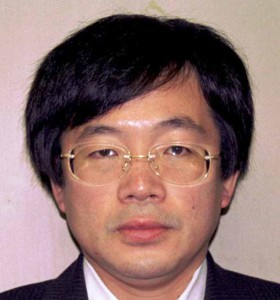[By Nobuhiro Suzuki, Professor of the University of Tokyo’s Graduate School of Arts and Sciences]
“It is only the management of a handful of big companies who are making money, and ordinary people’s lives are getting harder. We can’t stand it anymore.” It is true that such voices contributed to the victory of Donald Trump in the U.S. presidential election.
However, Trump himself is not necessarily saying he is going to stand up for the ordinary people. He is totally different from Bernie Sanders, who campaigned against Hillary Clinton in a bid to become a Democratic Party nominee. Trump is only saying “America first” and pledging to bring back profits to the U.S. industries and jobs to American people by letting other countries bear more burden.
In response, Japan has forcibly ratified the Trans-Pacific Partnership free-trade agreement, virtually making a commitment globally to set the pact as its baseline standard for market liberalization and offering the U.S. further benefits.
The TPP deal should be a beneficial agreement for the U.S. As a lawmaker of the ruling bloc put it, if the pact is not approved, American farmers “would be letting a big chance go down the drain before their very eyes.” And the U.S. is highly likely to ask for an alternative agreement which will be even more beneficial for them. Moreover, negotiators for the Economic Partnership Agreement between Japan and the European Union are setting the TPP agreement as the baseline and moving toward opening Japan’s market more than under the TPP agreement in such areas as dairy products.
On top of that, the Japanese government has said the TPP agreement will become the basis also for the Regional Comprehensive Economic Partnership, a framework of 16 countries mainly in the Asian region seeking flexible and mutually beneficial rules. It seems like Japan’s agriculture is falling into a vicious cycle of trade negotiations piling up on top of the TPP deal.
Japan’s only policy toward the U.S. is to work steadily to respond to their demands (through proposals by the Regulatory Reform Promotion Council), so it is easy to predict what will come next.
The U.S. has been demanding that the National Federation of Agricultural Cooperative Associations (ZEN-NOH) be turned into a joint stock company, so that American trading firms can purchase it. It is also asking to let foreign financial institutions compete on equal terms with Japan’s “kyosai” mutual aid societies and insurance firms. Now that the privatization of Japan’s postal funds is realized, the next target is to completely take control of Japanese agricultural cooperatives’ funds.
There is no way we can believe that the agricultural cooperative reform is truly aimed at improving agricultural income. There are many companies waiting for the reform to be realized in order to: a. take hold of credit and kyosai money; b. disband the cooperative selling system to obtain agricultural produce at lower prices; c. dismantle the cooperative procurement system to raise the prices of agricultural materials; d. enter the farm business after agricultural coops and farmers give up the business. These are exactly what the Regulatory Reform Promotion Council has proposed.
Needless to say, organizations like cooperatives, which protect the benefits and rights of ordinary people and small and medium-size businesses through mutual aid services designed to prevent concentration of profits, are an obstacle whose existence should be denied in the eyes of those working only for their own short-term profits. Such people attack cooperatives, arguing that cooperatives are protected by “vested interests” and “bedrock regulations” that need to be drilled, and try to snatch market share from cooperatives to line their own pockets. This is the true intention behind their demands for competition on equal terms.
Self-reform is significant, but those who are attacking the cooperatives don’t really care about it. We have to be aware that even the best possible self-reform plan to expand farmers’ income would be worthless for them. Cooperatives will certainly be destroyed if they don’t fight them head-on. The latest unreasonable proposals by the Regulatory Reform Promotion Council were pushed back by the ruling parties. However, it is necessary to keep in mind that this is only the beginning of a struggle against attempts to open markets and gradually stifle Japan’s agriculture and related organizations.


